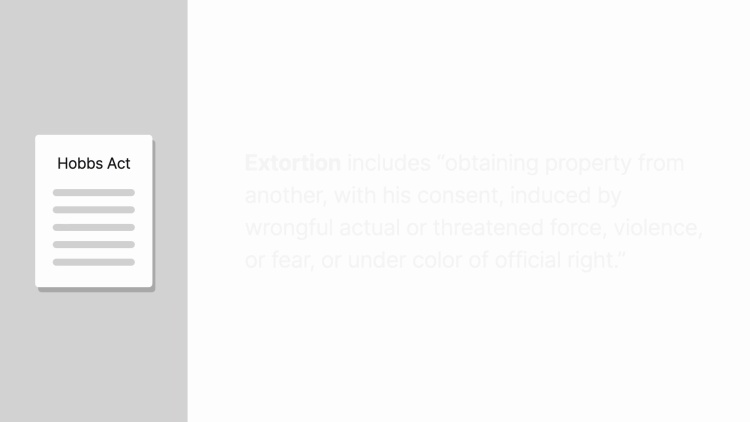Evans v. United States
United States Supreme Court
504 U.S. 255 (1992)
- Written by Samantha Arena, JD
Facts
Evans (defendant) was an elected representative of the Board of Commissioners of DeKalb County, Georgia. The Federal Bureau of Investigation (FBI) launched an initiative to investigate public corruption involved in the rezoning of property in DeKalb County. An FBI agent acting as a real-estate developer spoke to Evans numerous times. In their conversations, which were all initiated by the FBI agent, the agent asked Evans to help with rezoning a piece of land. The agent gave Evans $7,000 in cash, as well as a check for $1,000, payable to Evans’s campaign. Evans reported the check on his disclosure form for state-campaign financing, but Evans did not report the cash. Evans was charged with extortion in violation of the Hobbs Act, 18 U.S.C. § 1951, which forbids affecting commerce by robbery or extortion. Extortion is defined as obtaining property from another through inducement (1) by wrongful use of threatened force or fear or (2) under color of official right. The trial judge instructed the jury that the solicitation of campaign contributions by an elected official was a permissible activity, but that, if a public official demanded or accepted money in exchange for a requested exercise of his or her official power, that conduct violated the Hobbs Act regardless of whether the payment was made under the guise of a campaign contribution. Evans was convicted and appealed. The court of appeals affirmed the conviction, stating that an official who accepted payment in exchange for a specific, requested exercise of his or her official power could be convicted without having taken any specific action to induce the offering of the payment. Evans appealed again.
Rule of Law
Issue
Holding and Reasoning (Stevens, J.)
Dissent (Thomas, J.)
What to do next…
Here's why 907,000 law students have relied on our case briefs:
- Written by law professors and practitioners, not other law students. 47,100 briefs, keyed to 996 casebooks. Top-notch customer support.
- The right amount of information, includes the facts, issues, rule of law, holding and reasoning, and any concurrences and dissents.
- Access in your classes, works on your mobile and tablet. Massive library of related video lessons and high quality multiple-choice questions.
- Easy to use, uniform format for every case brief. Written in plain English, not in legalese. Our briefs summarize and simplify; they don’t just repeat the court’s language.





